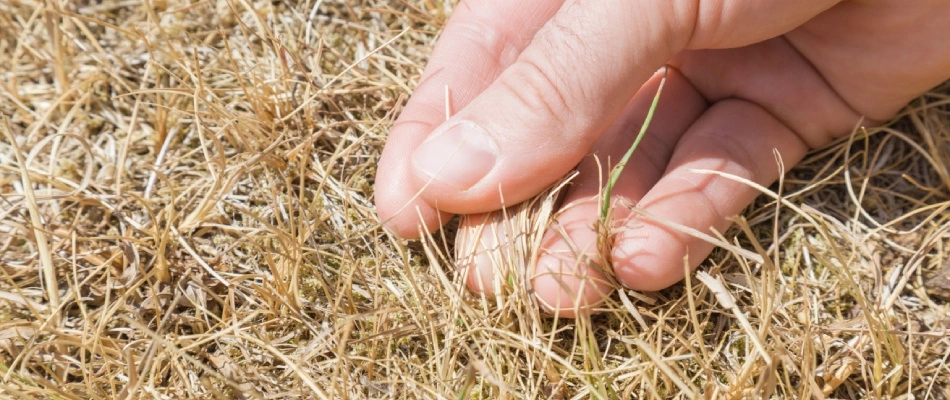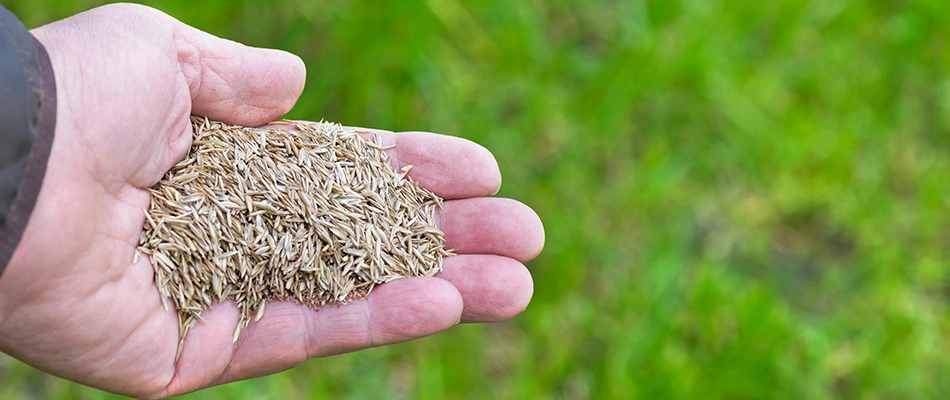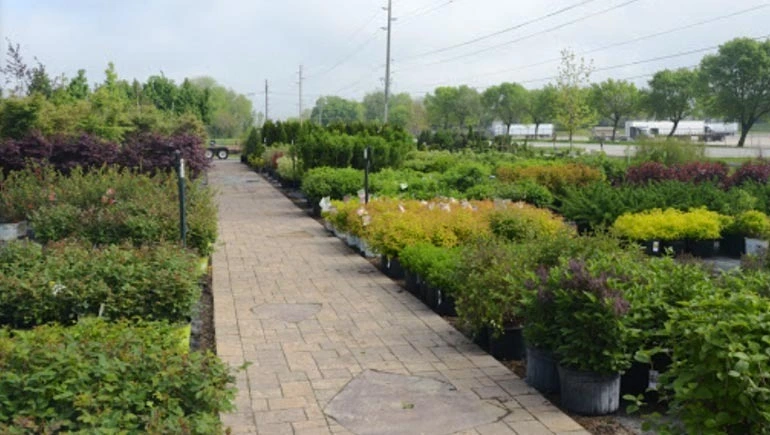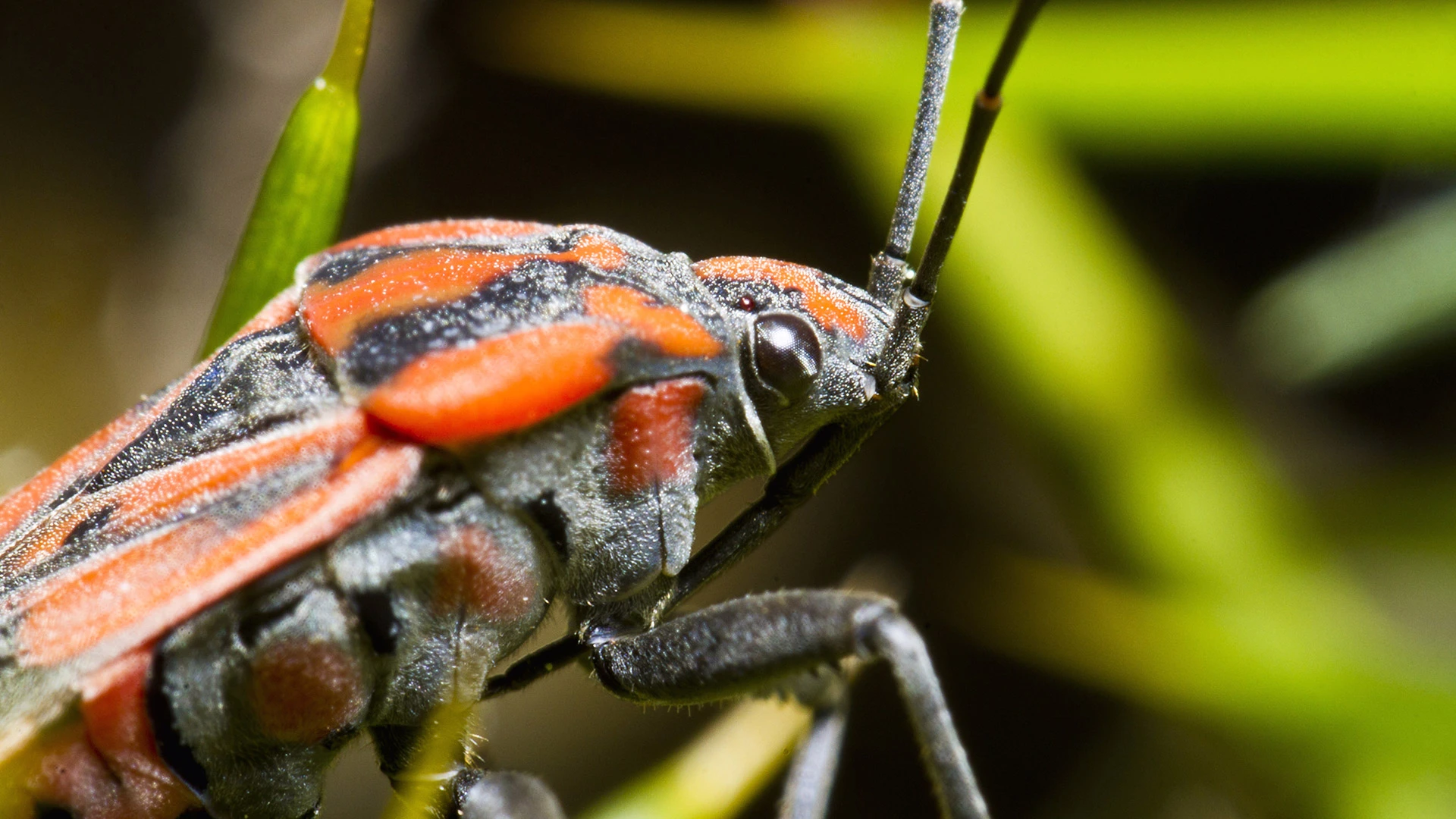With warmer weather on the horizon as June approaches, and as many property owners here in Iowa have discovered the hard way, you need to be on the lookout for a chinch bug infestation. These lawn insects can infest your lawn, settling on blades of grass and sucking fluid from them until they wilt. When you notice these signs, you should call a professional immediately so they can kick the chinch bugs to the curb with a curative treatment, saving your lawn from future damage! Post-infestation, routine lawn care will reverse the harm chinch bugs have inflicted on your lawn and bolster the turf against future infestations. With the proper care and preparation, chinch bugs will be nothing but a bump in the road for your lawn on the path to success!
Common signs of chinch bug damage include wilting, straw-colored grass.

Chinch bugs are, at their full-grown size, about one-sixth of an inch long, with a dark gray or black body, white wings, and red legs. Females lay their eggs in the spring and once hatched, set upon the lawn with voracious hunger. These insects have piercing mouthparts that they use to penetrate the grass blade and suck fluid from the plant. As the turf is drained, it will begin to wilt, turning the grass to a straw color in large swaths as the bugs spread. This damage is the clearest sign that you have an active chinch bug infestation!
Chinch bugs may inject a secretion as they feed which interferes with the plant's vascular system, affecting water and nutrient movement.
The best course of action is to call a professional and schedule a curative chinch bug treatment.
When chinch bugs are attempting to overtake your lawn, it's high time to take action. The best thing to do is to call a professional and schedule treatment! They'll assess your lawn, confirm the presence of chinch bugs, and determine the extent of the damage. With a full grasp of the situation, they can apply a curative treatment to kick the chinch bugs to the curb so that your lawn is freed of its unwelcomed guests!
Routine lawn care like fertilization, aeration, and overseeding will help your lawn recover from chinch bug damage.

Once the infestation has been eradicated, you can breathe a sigh of relief – but your lawn still needs help to recover fully. Routine lawn care will bolster your grass with the support it needs to rebuild after a chinch bug infestation. Lawn care services that can help restore your turf's strength include:
- Fertilization: Fertilizer will include a ratio of nitrogen, phosphorus, and potassium to replenish your lawn's nutrient stores so it can repair and regrow damaged sections.
- Aeration: Aeration will break up any soil compaction to improve nutrient access and water flow for the deep roots of your grass.
- Overseeding: Overseeding will help fill out any bare spots that haven't recovered from the chinch bug damage with new, healthy grass.
We can help eliminate chinch bugs. Call our team today to schedule our curative chinch bug treatment!
At A+ Lawn & Landscape, we combine the best-and-brightest lawn and landscape professionals in the industry with top-tier products and tools to create an exceptional customer experience from start to finish. We don't believe in doing anything halfway, and our team members will diligently apply our treatments, ensuring no grass blade or patch of soil is left untreated. Our chinch bug control service will rid your lawn of these pesky insects using a highly effective curative treatment that will only need to be applied once to eliminate the infestation. We can also supply the high-quality lawn care your turf will be yearning for afterward to foster a strong recovery! These services are available to commercial and residential property owners in Des Moines, IA and nearby areas like West Des Moines and Ankeny. Get in touch with our office today to schedule your treatment by calling (515) 289-2020!





Comments (0)
Thanks for your comment!
Thanks for your feedback! Your comments have been successfully submitted! Please note, all comments require admin approval prior to display.
Error submitting comment!
There is a problem with your comment, please see below and try again.